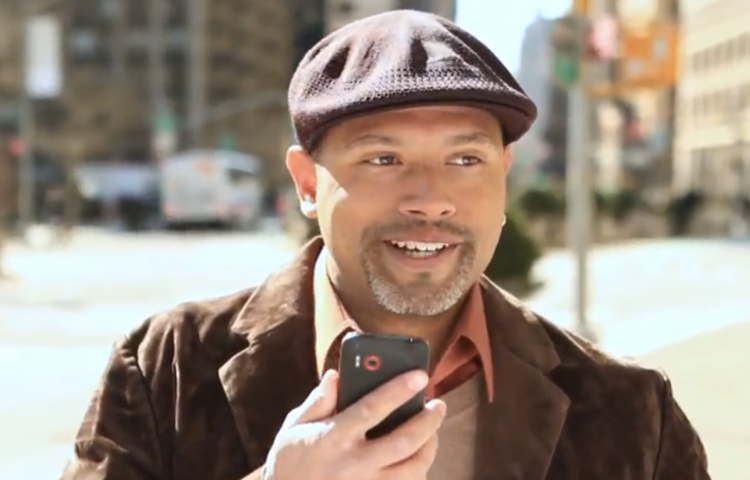Why deal with a password when you can authenticate with a simple voice passphrase?
That’s the question behind Nuance’s next-generation voice biometric technology, which the company claims is 50 percent more accurate than its predecessor, as well as more secure with increased fraud detection. Nuance says its voice biometrics has reached 99.6 percent accuracy.
Nuance is most famous for its Dragon Naturally Speaking software, but it’s also found a place as an enabler of voice-powered services on mobile devices (its technology powers Apple’s Siri virtual assistant, as well as voice dictation in Android.)
With voice biometrics, a phrase spoken out loud can replace a password or PIN for things like mobile apps, websites, and call centers. For consumers, it’s a faster way to access your services without having to remember a password. Nuance also claims that voice authentication leads to better customer satisfaction and reduced costs.
Ninety-three percent of Barclays customers, for example, have rated its voice authentication a 9 out of 10 in terms of “speed, ease of use, and security,” and it’s also led to calls that are 5 percent shorter (or around 20 seconds). Nuance says it powered more than 100 million voice biometric verifications last year, and it’s also received more than 30 million voiceprints from consumers.
“We really felt that if we didn’t get the authentication piece right, a lot of the technologies we offer customers will be playing catchup [in terms of user adoption],” said Greg Pal, Nuance’s vice president of marketing and business development, in an interview with VentureBeat.
Better accuracy, naturally, should lead to even wider adoption of Nuance’s voice biometrics. The company took around 10 years to reach 10 million voiceprints (it had the technology for a while,= but only recently started pushing it forward), but it managed to reach the 30 million mark in the last two years. Given its current growth, Pal says Nuance should double that figure soon.
When it comes to keeping its voice authentication system secure, Nuance is using multiple tactics: It can detect if someone is trying to authenticate with a recording of your passphrase (a red flag goes up if the phrase is “uncannily similar” to a previous login); it can detect if there’s a change in the speaker throughout the voice interaction; and with the latest update, Nuance can more effectively detect suspicious behavior (perhaps someone trying to log into multiple accounts very quickly).
Nuance’s current voice biometric customers include T-Mobile, Turkcell, and Foxtel. At this point, international companies are much further along in terms of adopting the technology — something that Nuance partially attributes to the recent financial crisis (big financial firms were far more focused on staying afloat, instead of exploring new authentication strategies). Nuance says one of the top three banks in the U.S, is currently using the technology, but it’s not publicly discussing the integration.
Below, check out an infographic Nuance has put together around recent voice authentication findings:



